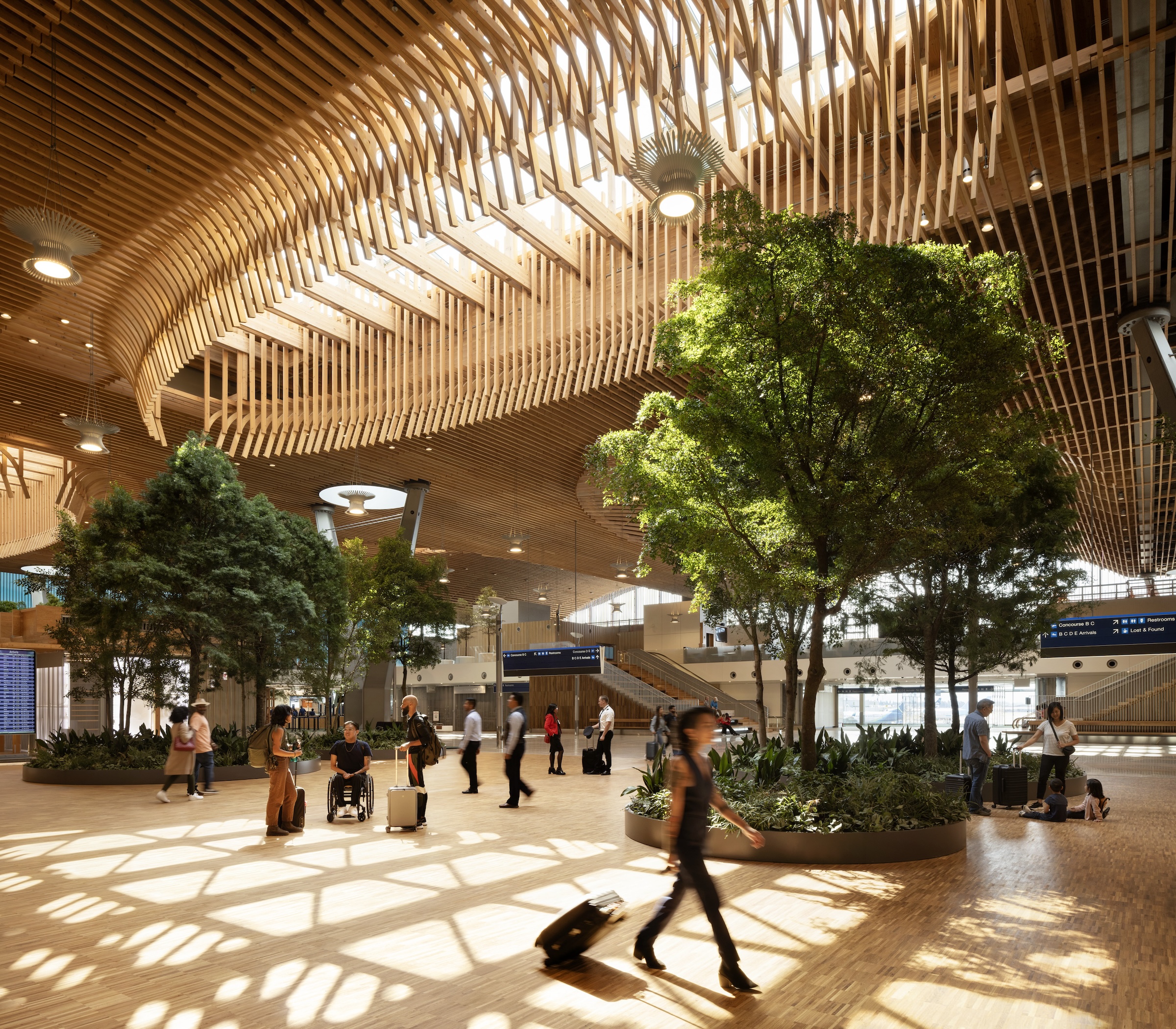This month, the Portland International Airport (PDX) main terminal expansion opened to passengers. Designed by ZGF for the Port of Portland, the one-million-sf project doubles the capacity of PDX and enables the airport to welcome 35 million passengers per year by 2045.
With a nine-acre mass timber roof, the $2 billion terminal renovation-expansion is the largest mass timber project of its kind, according to a press statement from ZGF.
The new terminal aims to evoke the experience of walking through a Pacific Northwest forest. The terminal offers views of the airfield, abundant natural light, and interior landscapes that suggest the region’s natural beauty. Designed at a neighborhood scale, the project features intimate plazas with tree-lined retail concessions and plant-filled gathering places.
“Everybody loves Portland International Airport,” Gene Sandoval, ZGF partner, said in the statement. “We had a tall order to evolve a terminal that’s essentially multiple buildings pieced together since the 1950s—and double the capacity while designing an experience passengers and employees will love as much as the original.”
As the expansion’s centerpiece, the prefabricated wood roof spans the expanded lobby, check-in, and security areas. The 3.5 million board feet of wood for the roof—as well as wood concessions, flooring, and feature walls—was sourced from within a 300-mile radius of PDX and includes wood from small family-owned forests, nonprofits, and tribal nations.
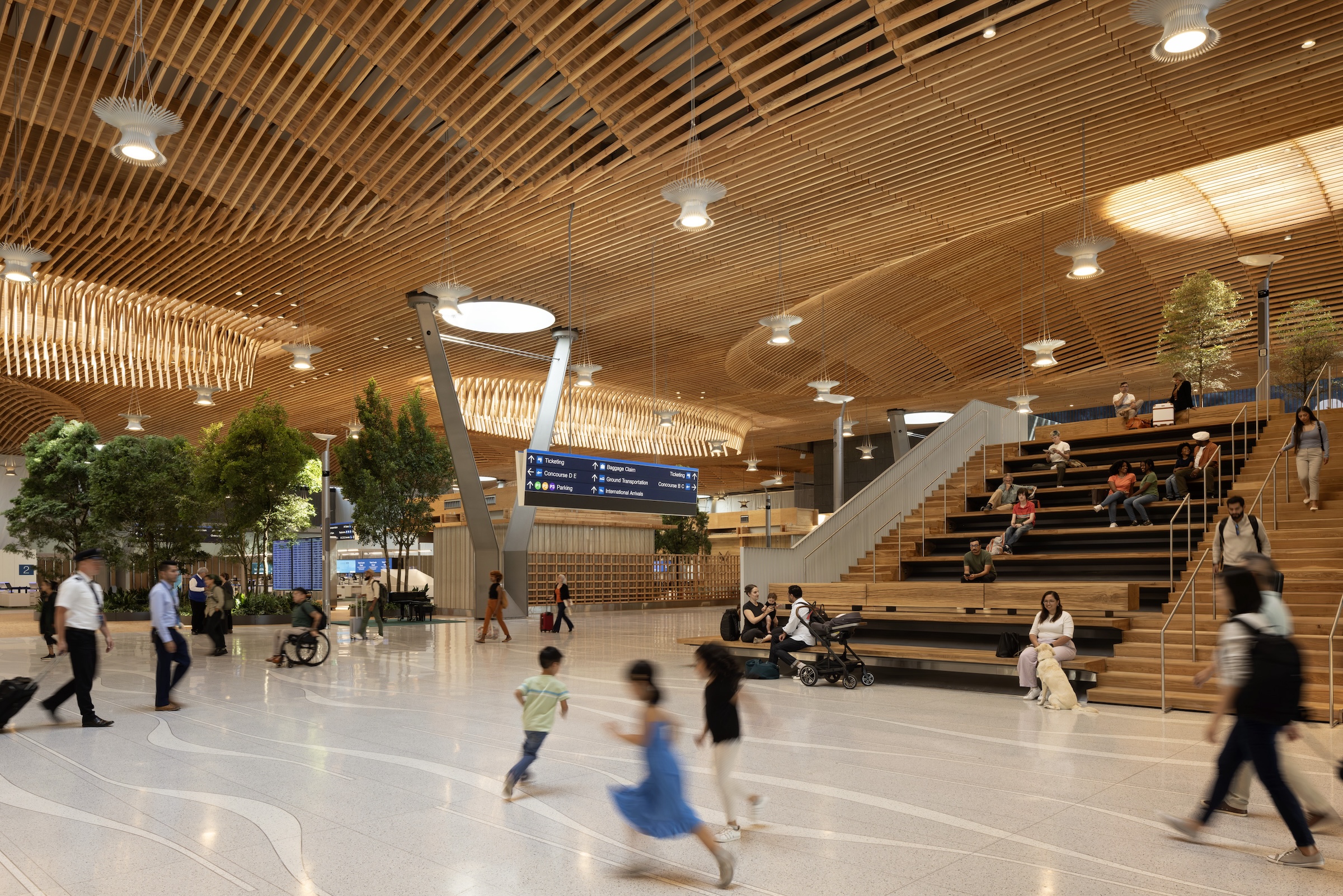
The Port of Portland and ZGF decided to renovate and expand in place instead of building an entirely new terminal. This approach helped achieve schedule and time savings in addition to a 70% reduction in embodied carbon compared to building new. The airport remained fully operational throughout five years of phased construction.
“The design evokes the best of our region yet offers other airports a new model for how to expand and renovate in place to meet the travel demands of the future generations,” Sharron van der Meulen, ZGF managing partner, said in the statement.
While doubling capacity, the main terminal achieves a 50% reduction in energy use per square foot with an all-electric ground-source heat pump. With resilient design strategies, the terminal can withstand a 9.0 magnitude earthquake.
A second project phase, now underway, will finish in early 2026, providing more retail and dining amenities as well as exit lanes on the north and south sides of the terminal.
On the Building Team:
Client: Port of Portland
Architect of record and interior designer: ZGF
Structural engineer: KPFF Consulting Engineers (primary), Arup
MEP engineer: PAE Engineers (primary), Arup
Geotechnical engineer: GRI
Civil engineer and airside planning: HNTB
General contractor: Hoffman Skanska Joint Venture
Pre-construction services: Turner Construction
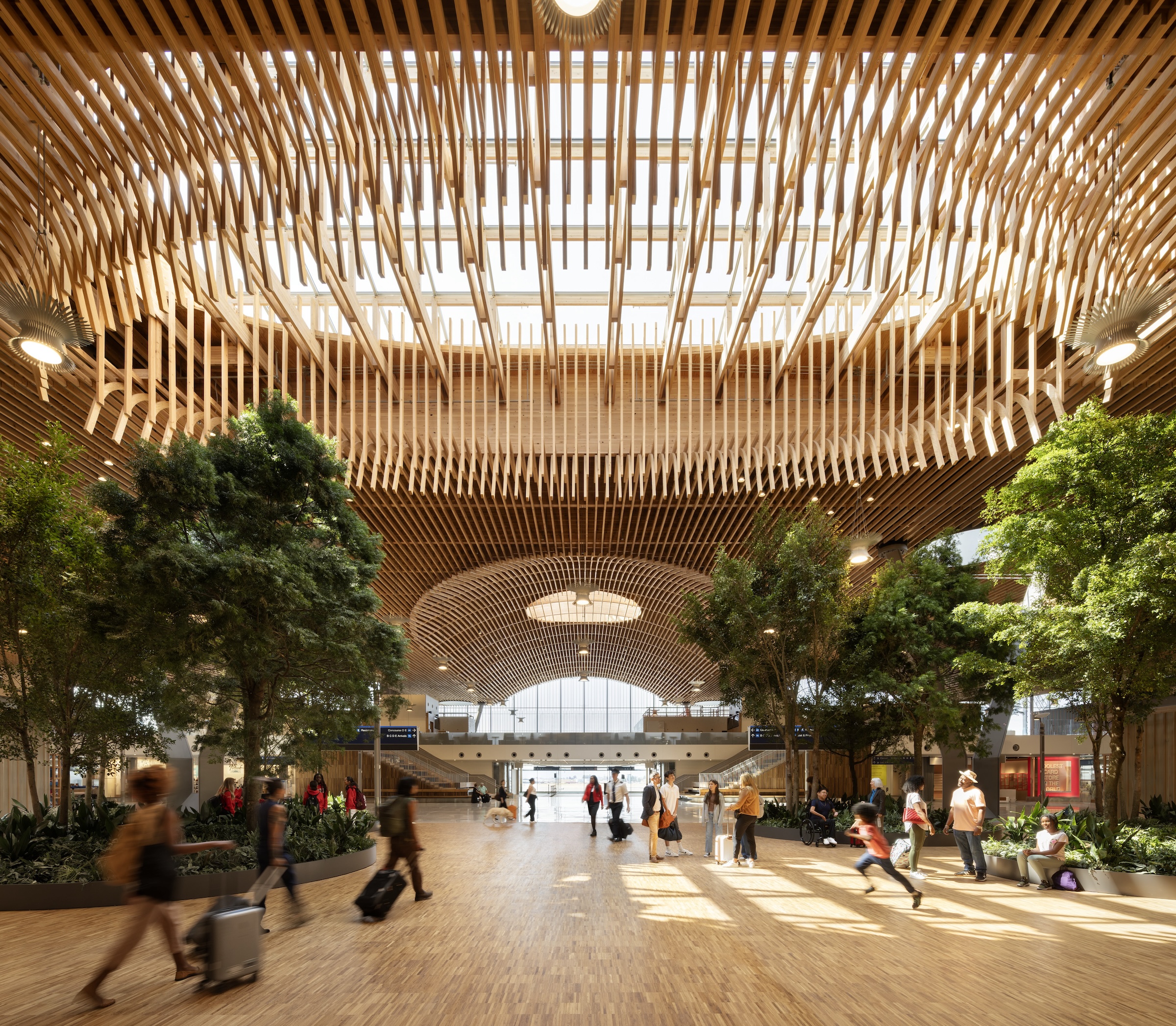
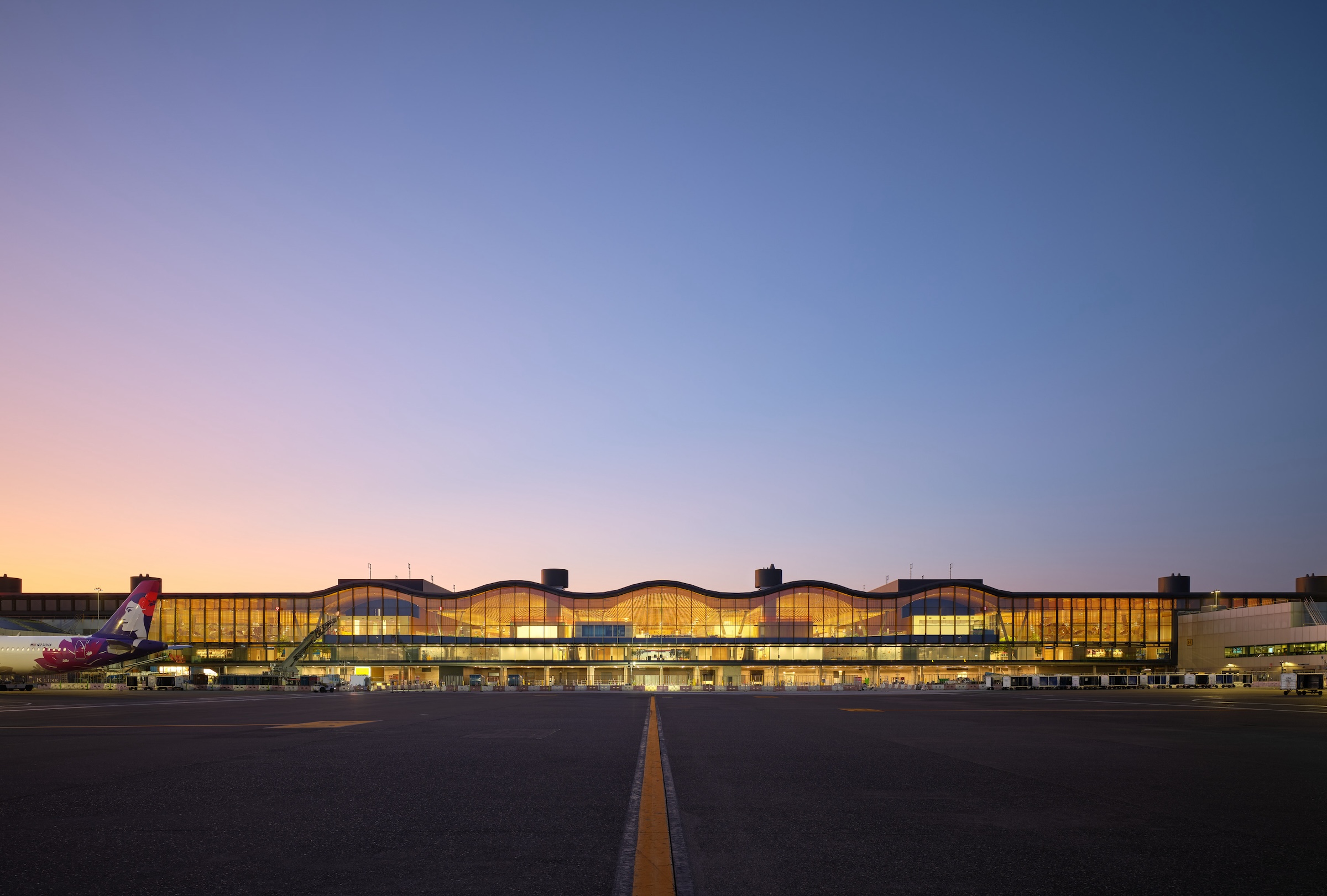
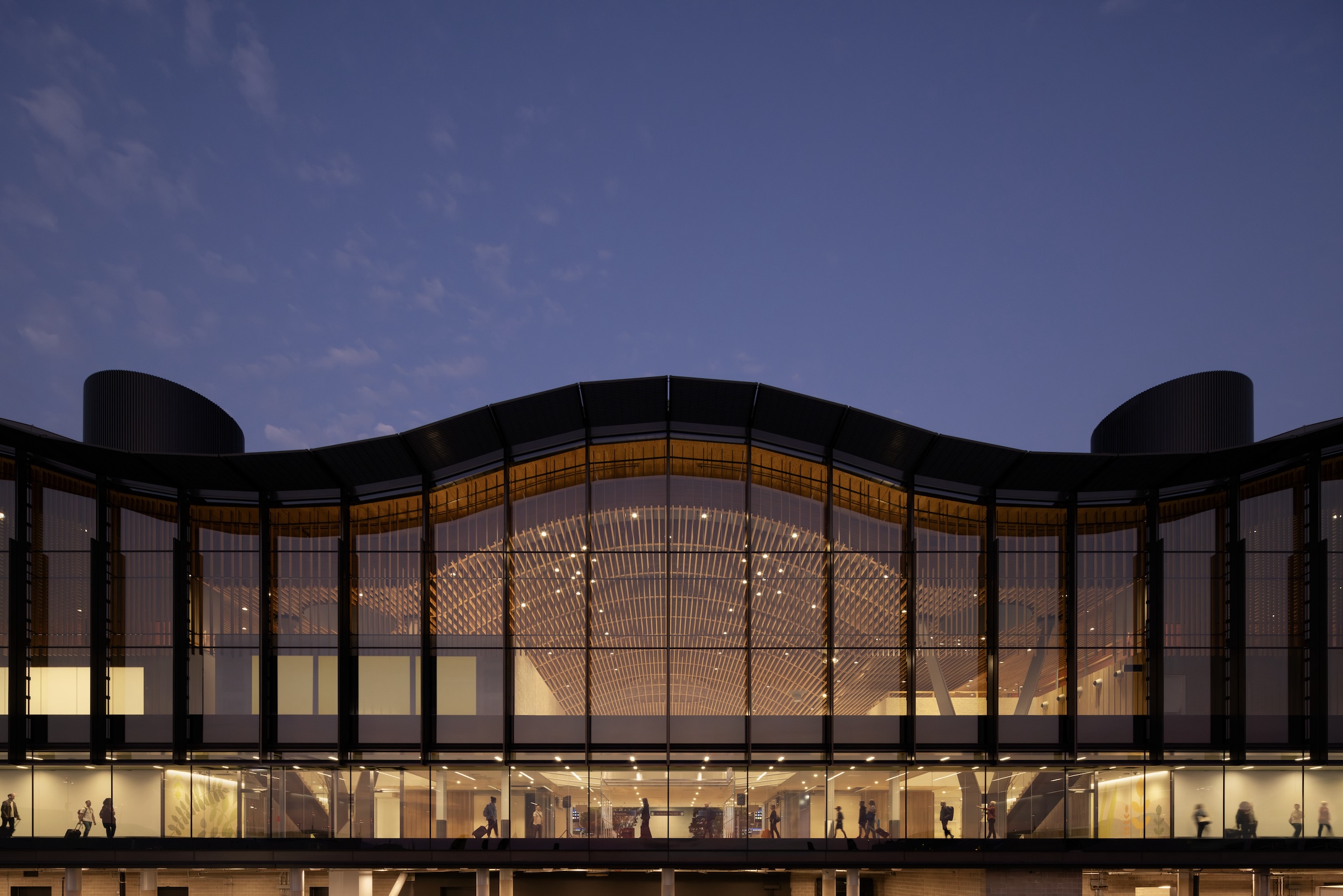
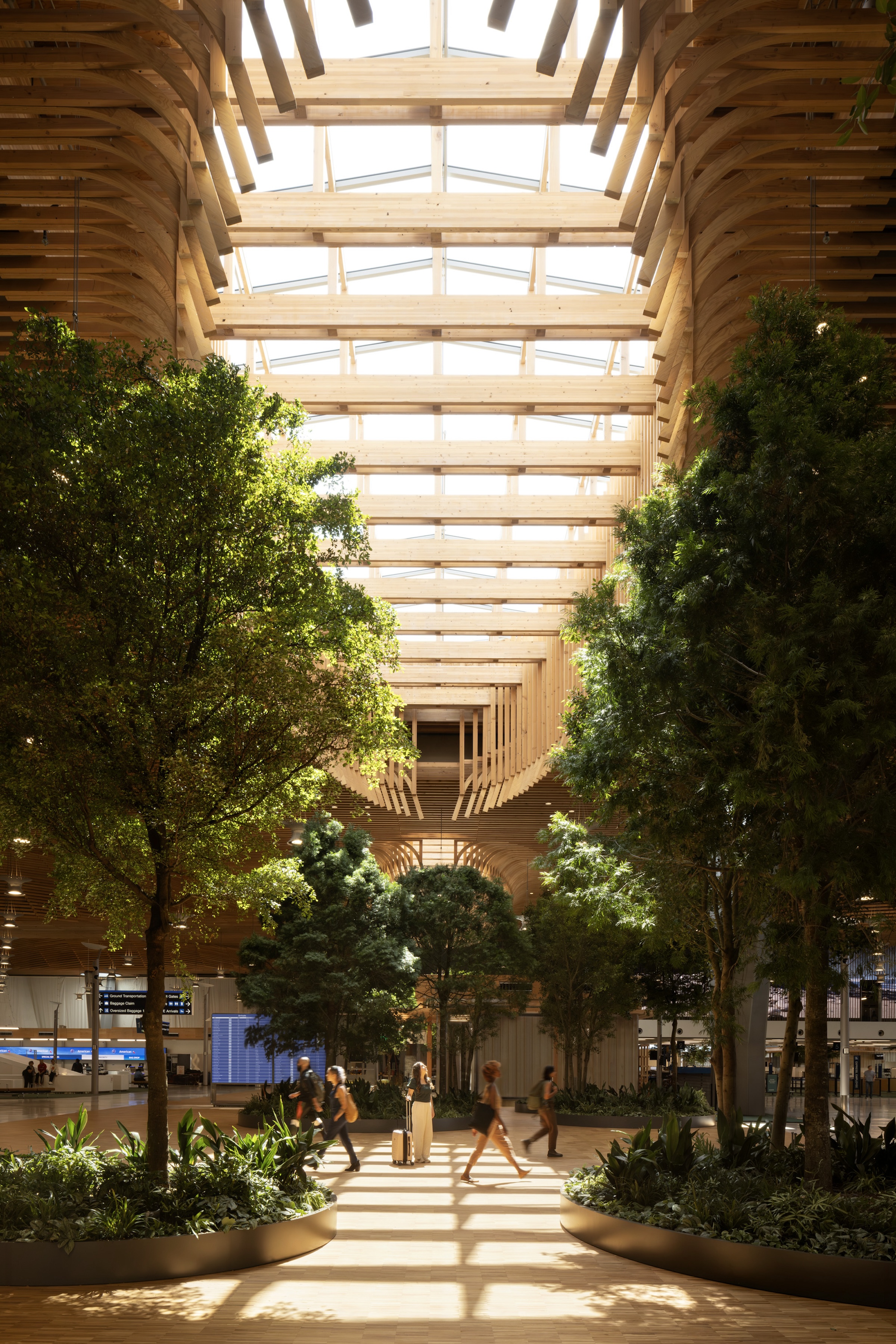
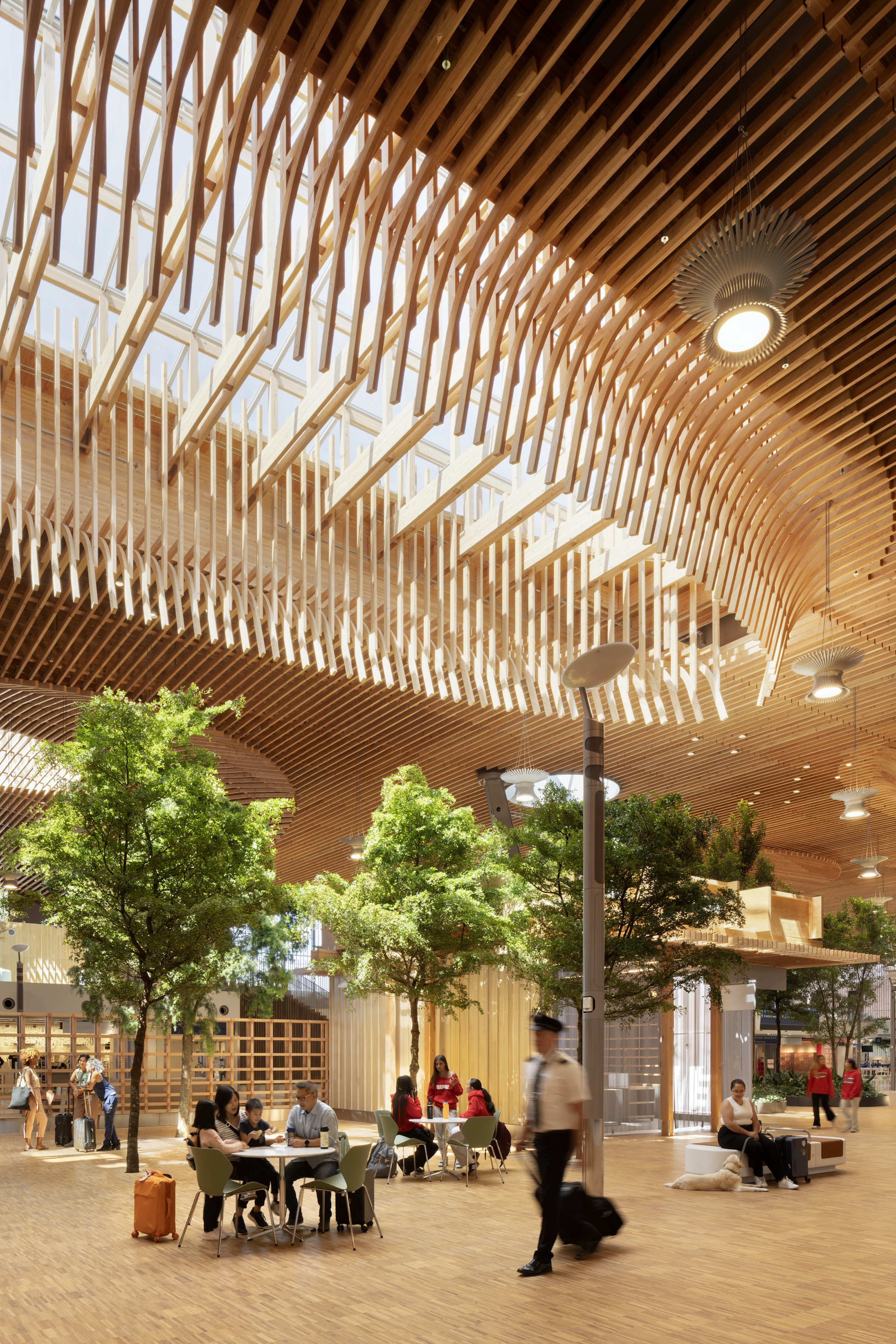
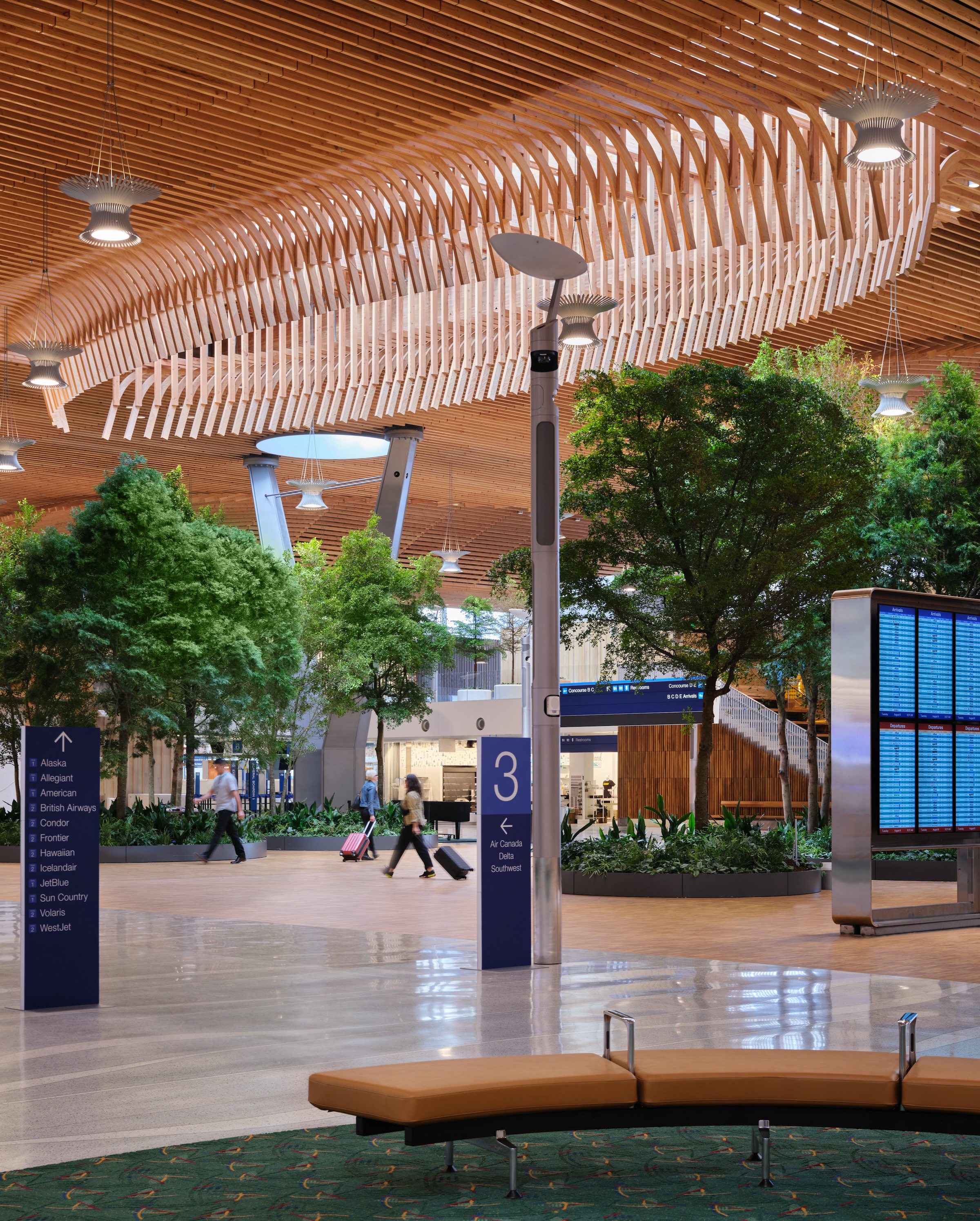
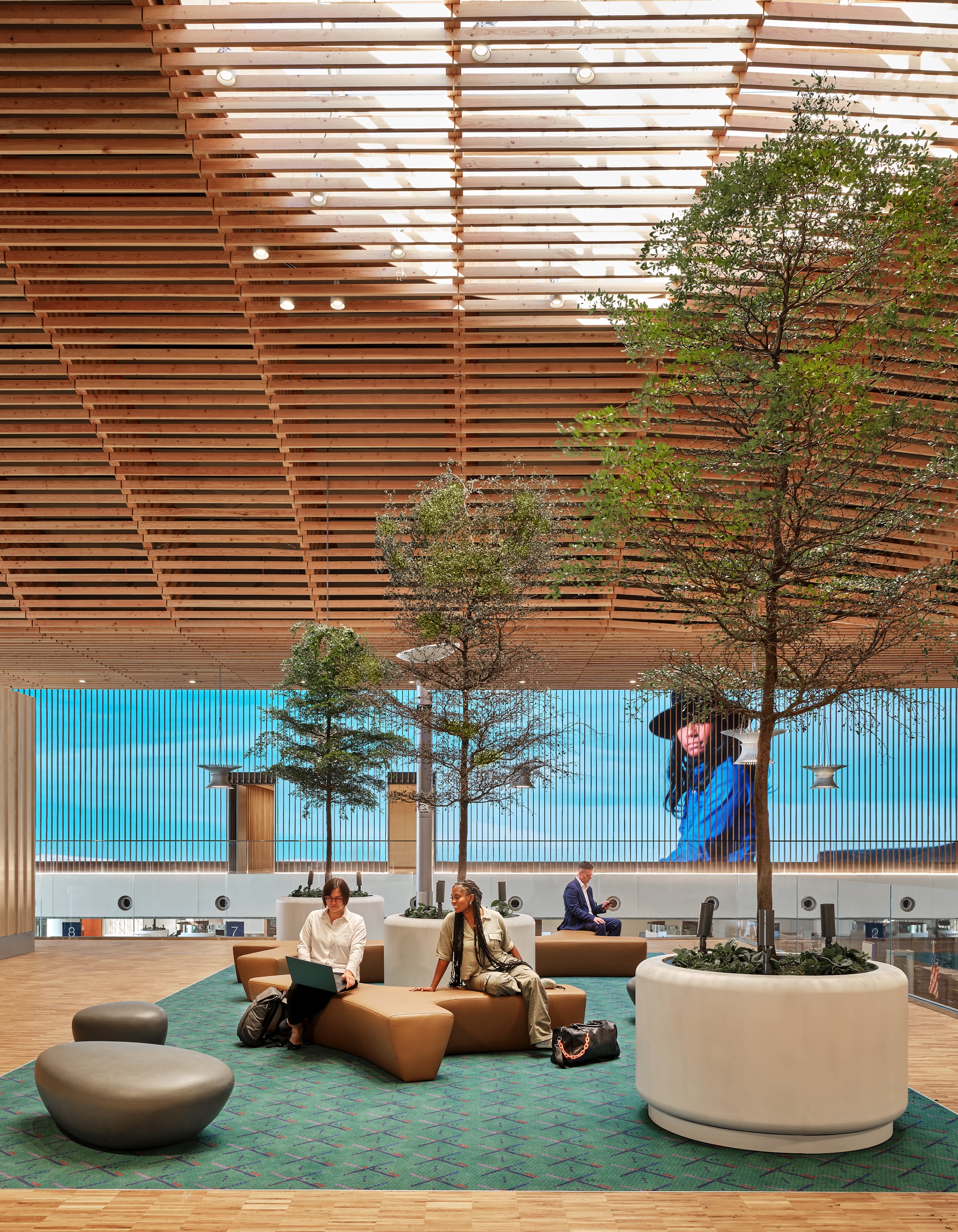
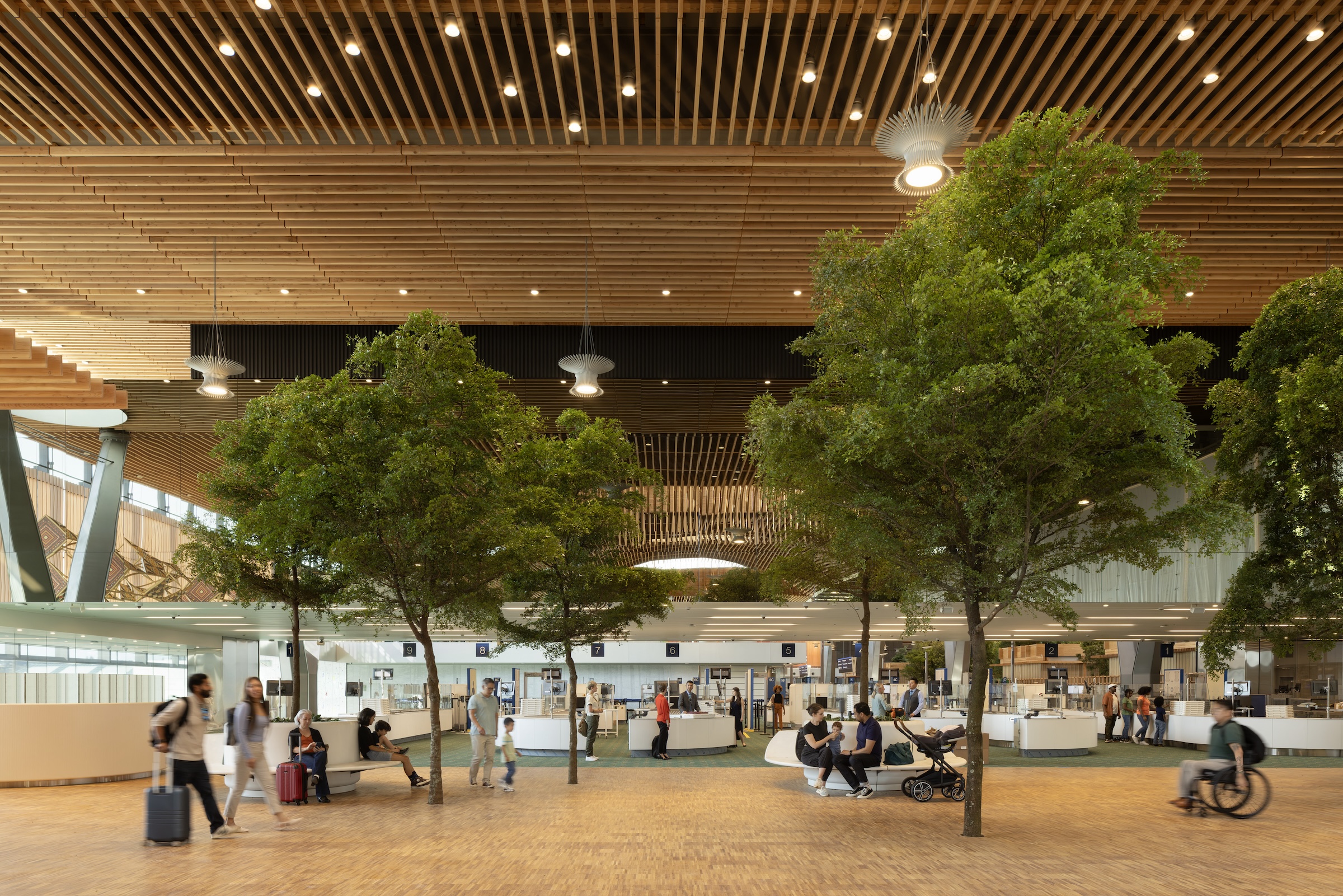
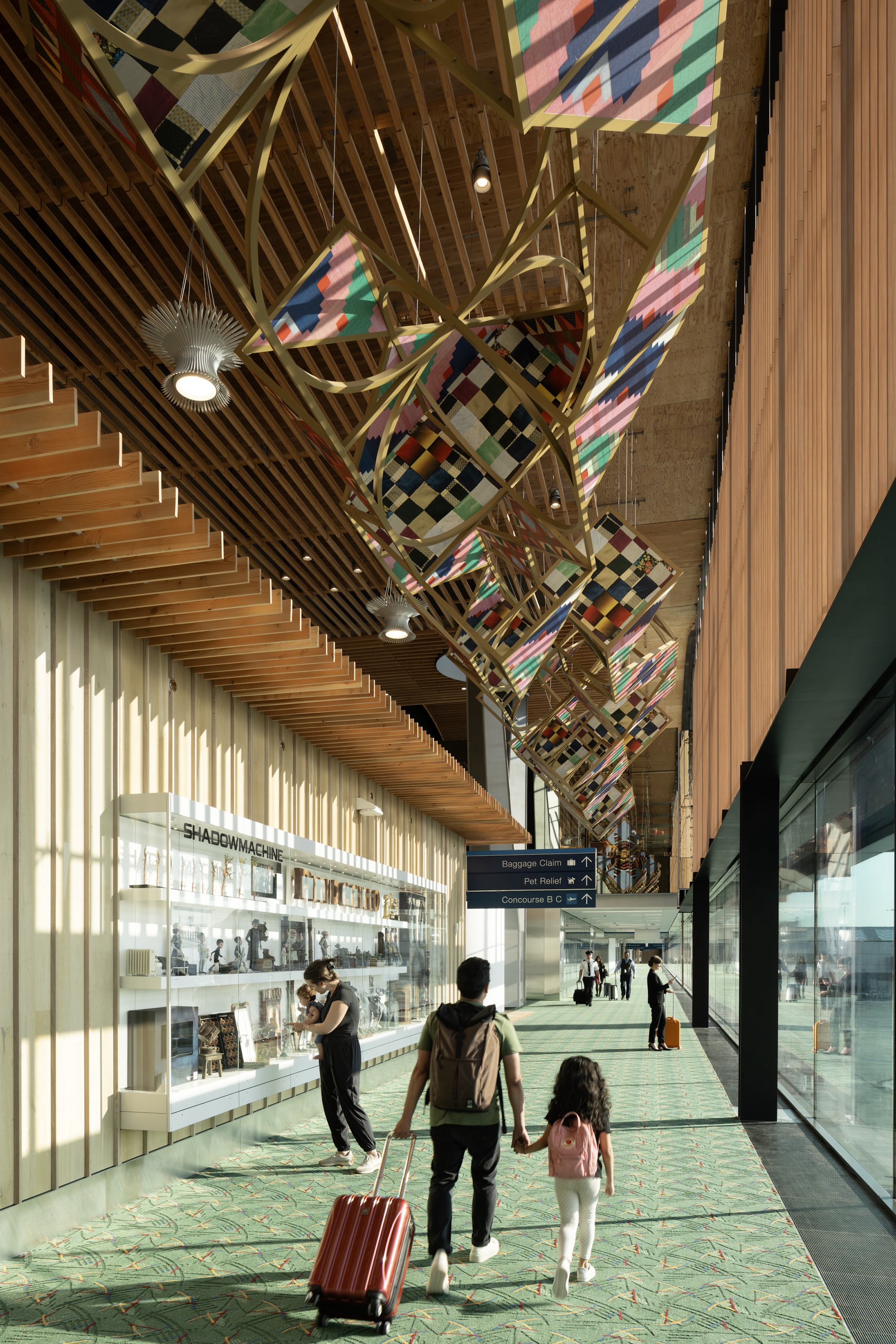
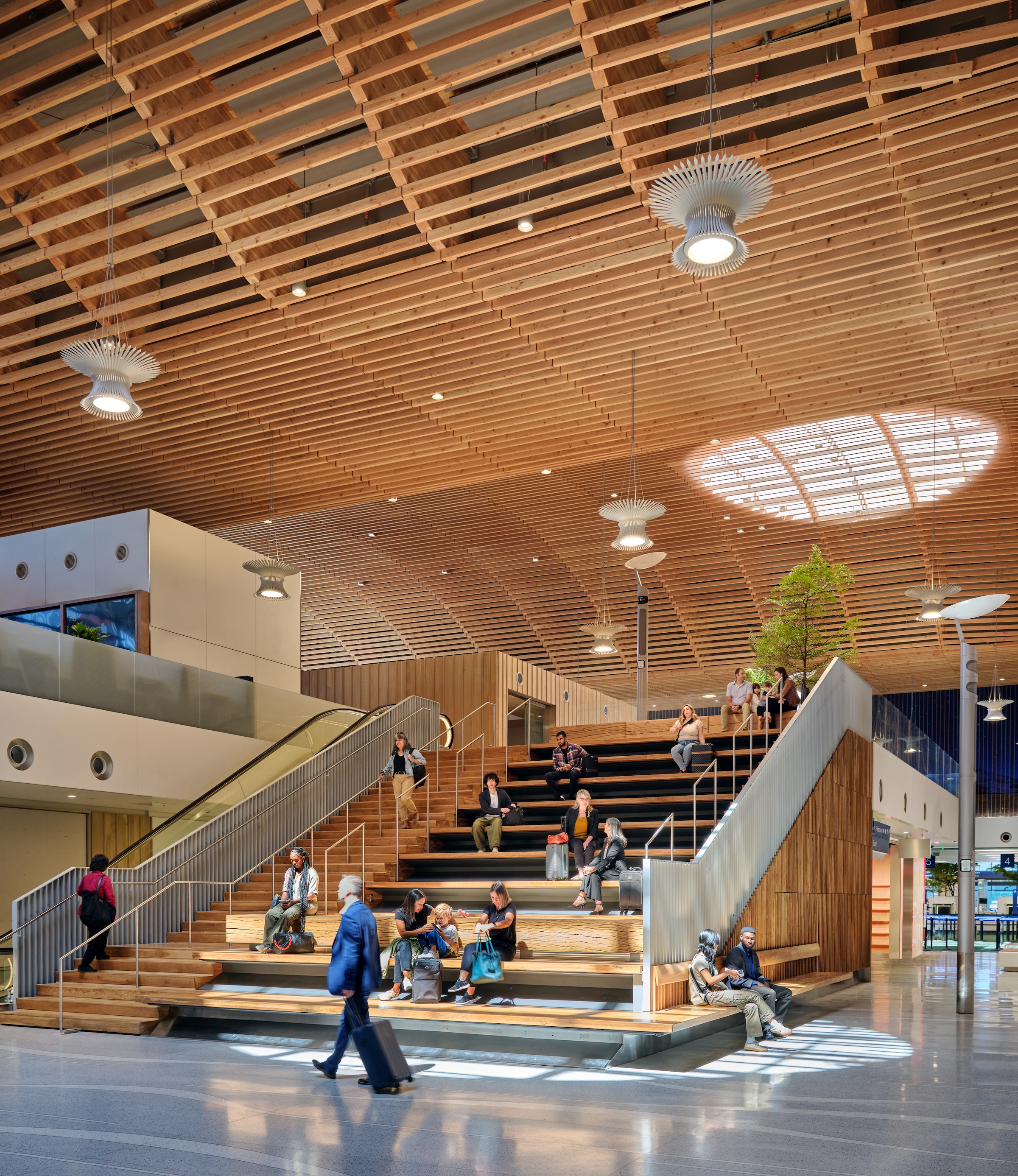

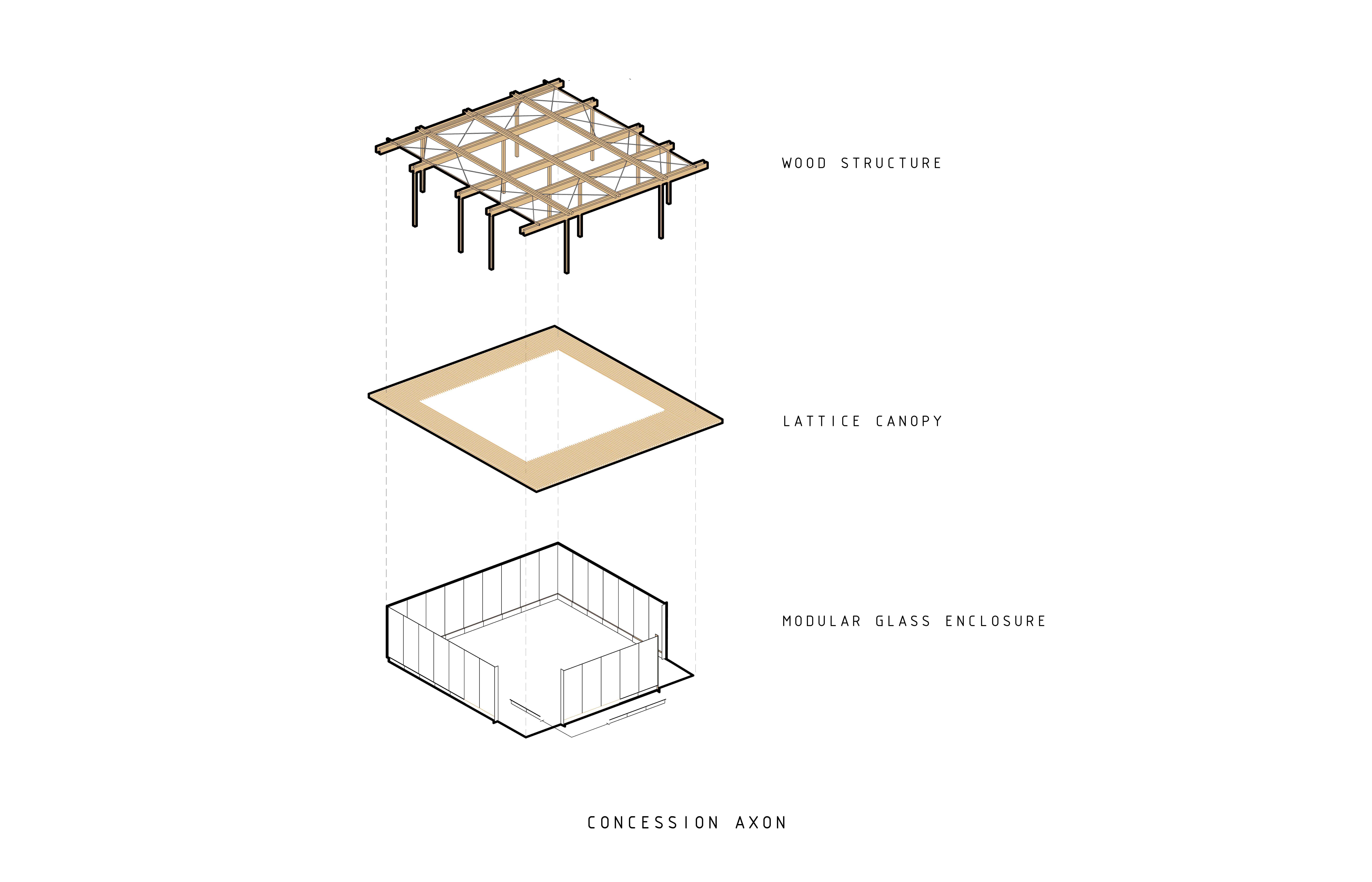
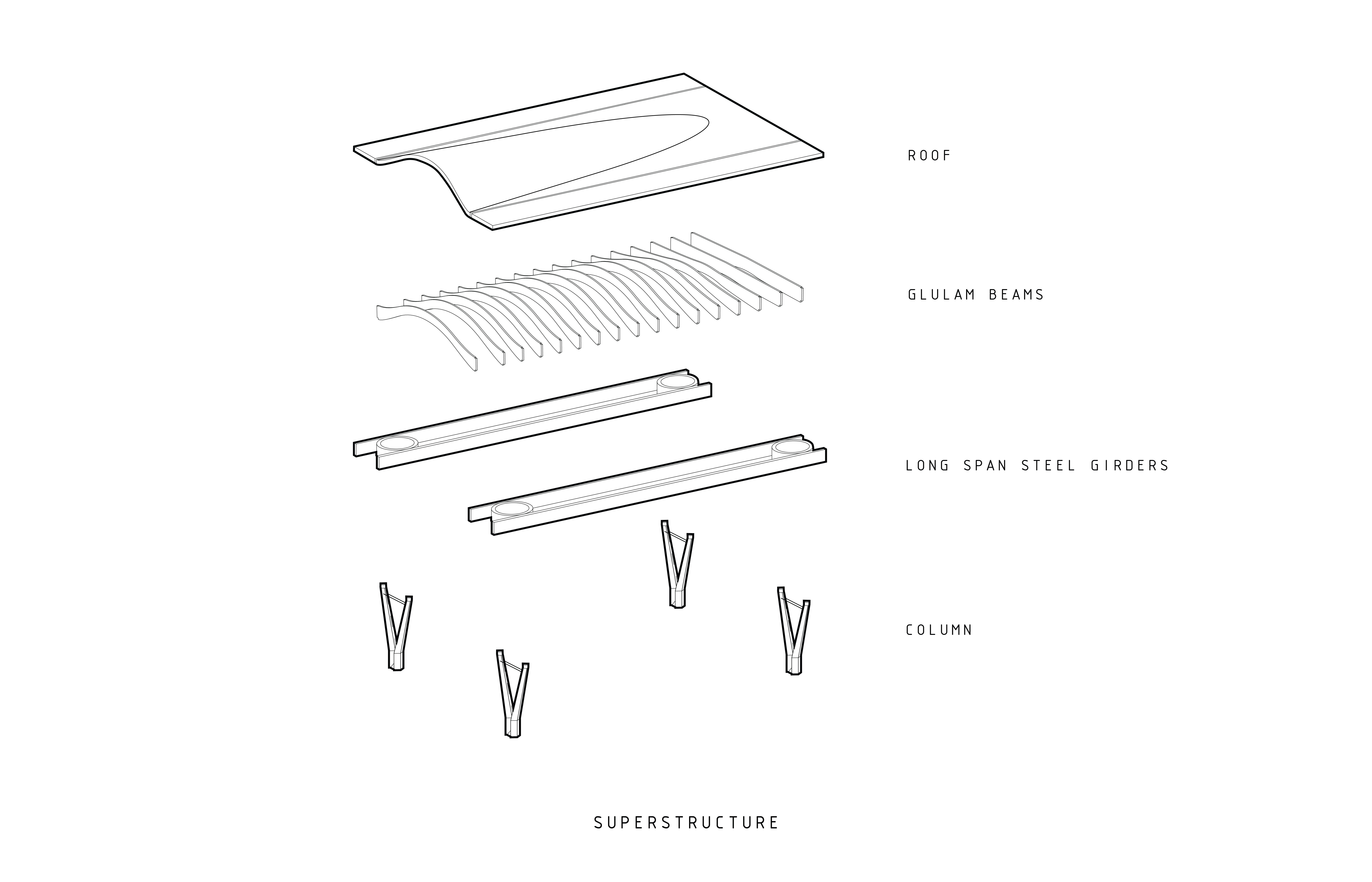
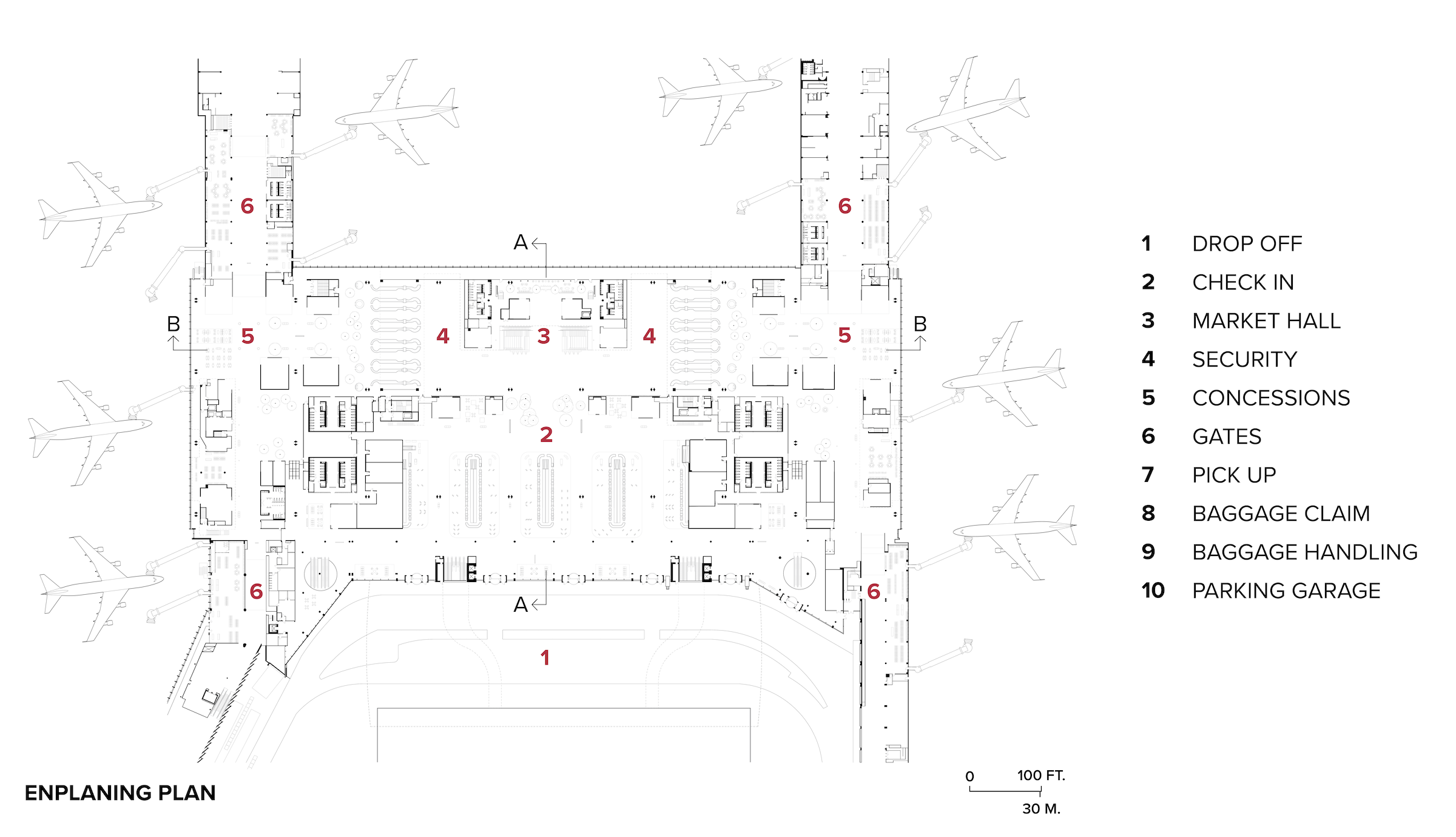
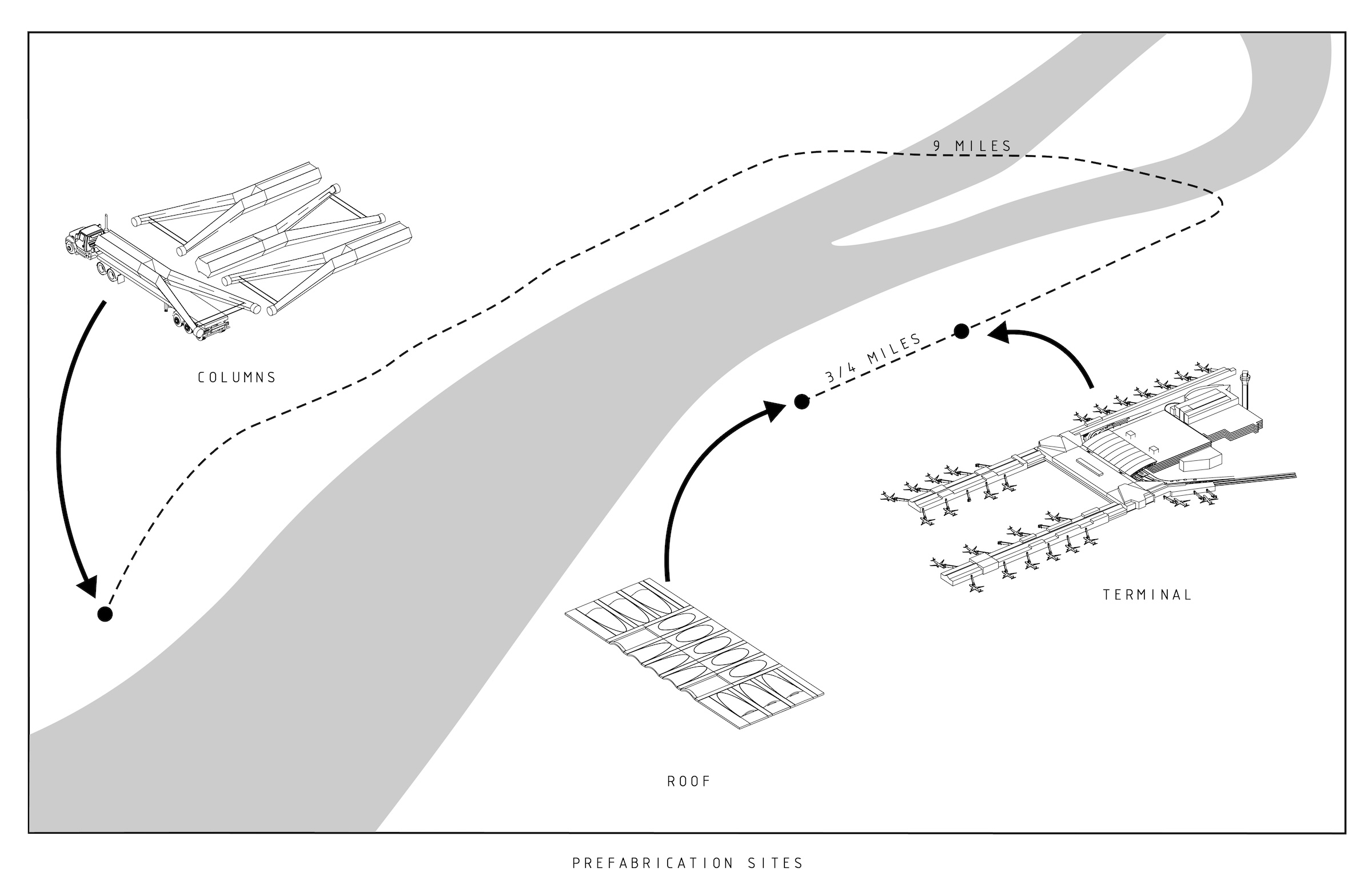
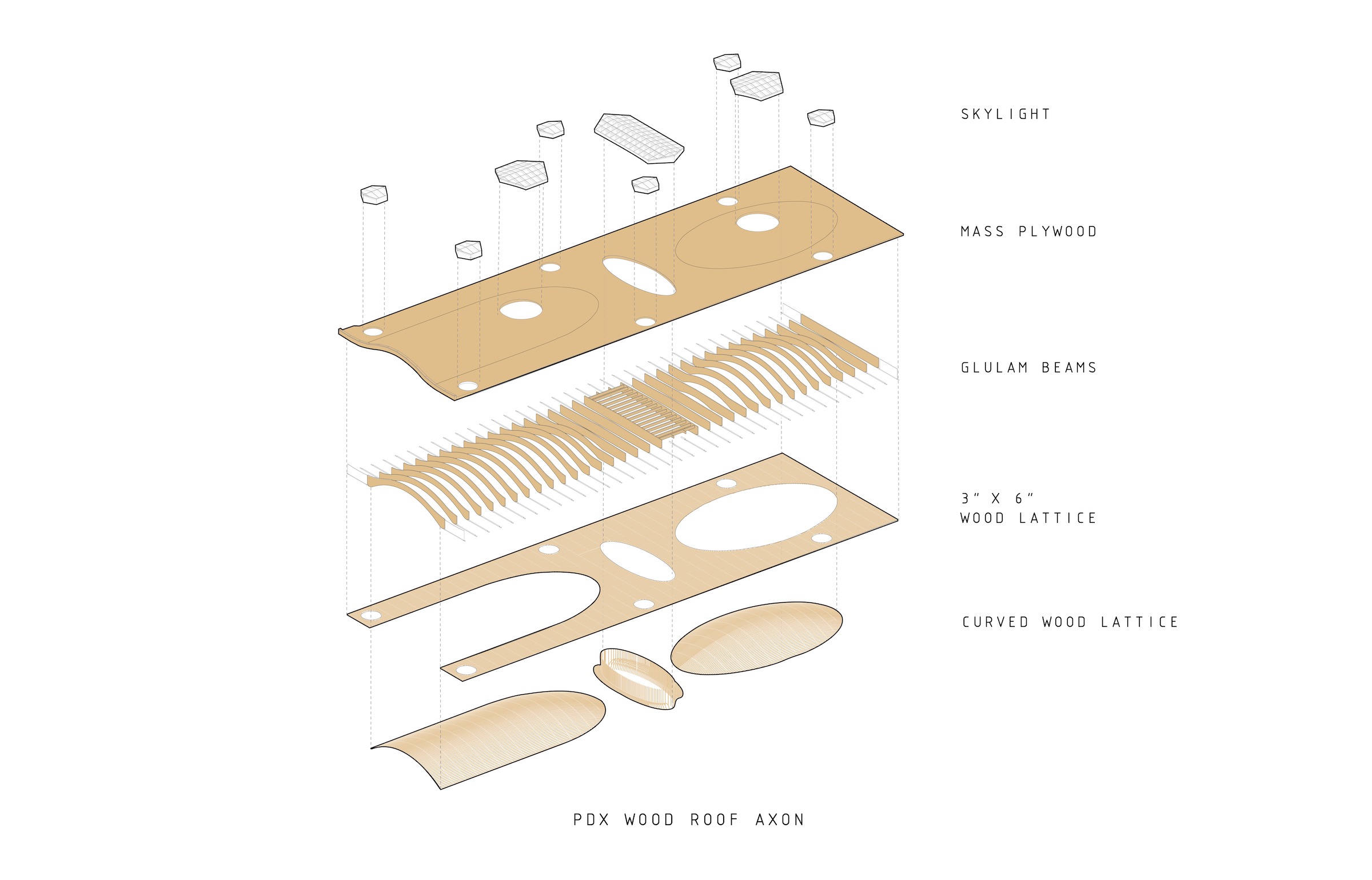
Related Stories
| Aug 11, 2010
Jacobs, HDR top BD+C's ranking of the nation's 100 largest institutional building design firms
A ranking of the Top 100 Institutional Design Firms based on Building Design+Construction's 2009 Giants 300 survey. For more Giants 300 rankings, visit http://www.BDCnetwork.com/Giants
| Aug 11, 2010
Earthquake engineering keeps airport grounded
Istanbul, Turkey's new 2.15 million-sf Sabiha Gökçen International Airport opened on October 31, 2009, becoming the world's largest seismically isolated building. Arup's global airport planning and engineering team, in collaboration with architects Dogan Tekeli Sami Sisa Mimarlik Ofisi and contractor LIMAK-GMR JV, working within an 18-month timeline, designed and built the facility wi...


